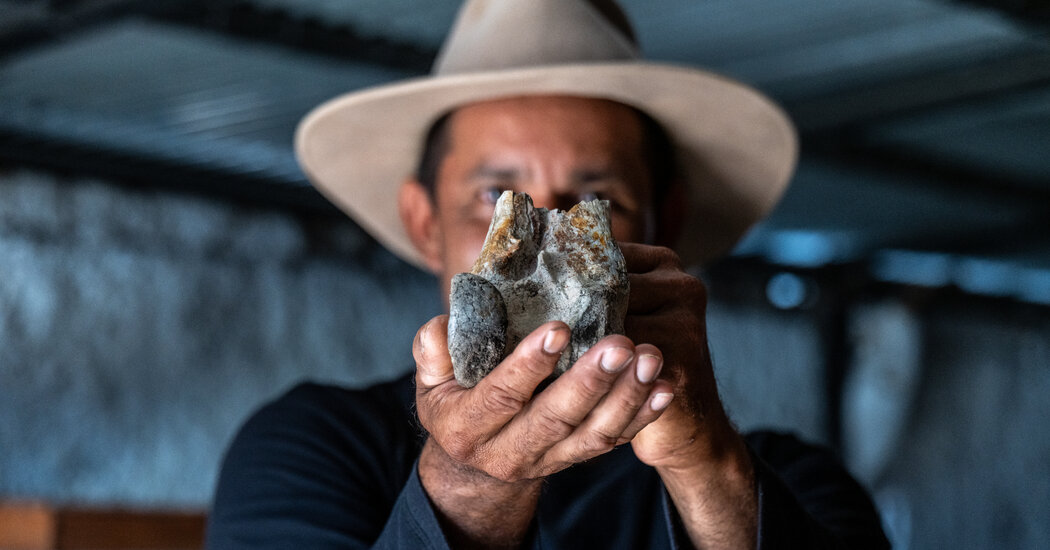César Perdomo’s small paleontological museum, La Tormenta, is a work in progress. A bare cement structure built on a windswept platform in the Tatacoa Desert, it offers a panoramic view of shallow, craggy canyons carved from soft mudstone.
Inside the museum, fossils are laid out on tables and shelves. The rest of Mr. Perdomo’s collection sits in boxes stacked to the ceiling; a saddle hangs haphazardly above a fossil turtle carapace parked on the floor. Also on-site are a restaurant and several rustic cabins, but weeks can go by without a guest.
Mr. Perdomo, 44, is a longtime rancher who, like many people in this region, has collected fossils all his life. The Tatacoa Desert is home to rich deposits of fossils from about 13 million years ago, the height of the Middle Miocene epoch.
The non-avian dinosaurs were long dead by then, and South America was an island continent, not yet connected to North America. It belonged to oversize hoofed mammals like toxodonts, distant relatives of today’s rhinoceroses and tapirs; tall crocodiles that walked on land; thickly armored armadillo-like creatures called glyptodonts; and giant, flightless birds known as terror birds, with powerful legs and flesh-ripping beaks.
It was a unique time in geological history when birds enjoyed a glorious role as top predators. About 20 terror bird species have been identified from the fossil record. The smallest were no bigger than dogs, while others reached 10 feet tall. Some hunted by ambushing their prey, while others outran it.
Fossils of terror birds have been found in the southern cone of South America, mostly in Argentina, and also in Florida and Texas. Yet despite a century of intensive explorations by paleontologists, they had never been found in between. Their movements and whereabouts were a mystery until Mr. Perdomo decided to build La Tormenta.
